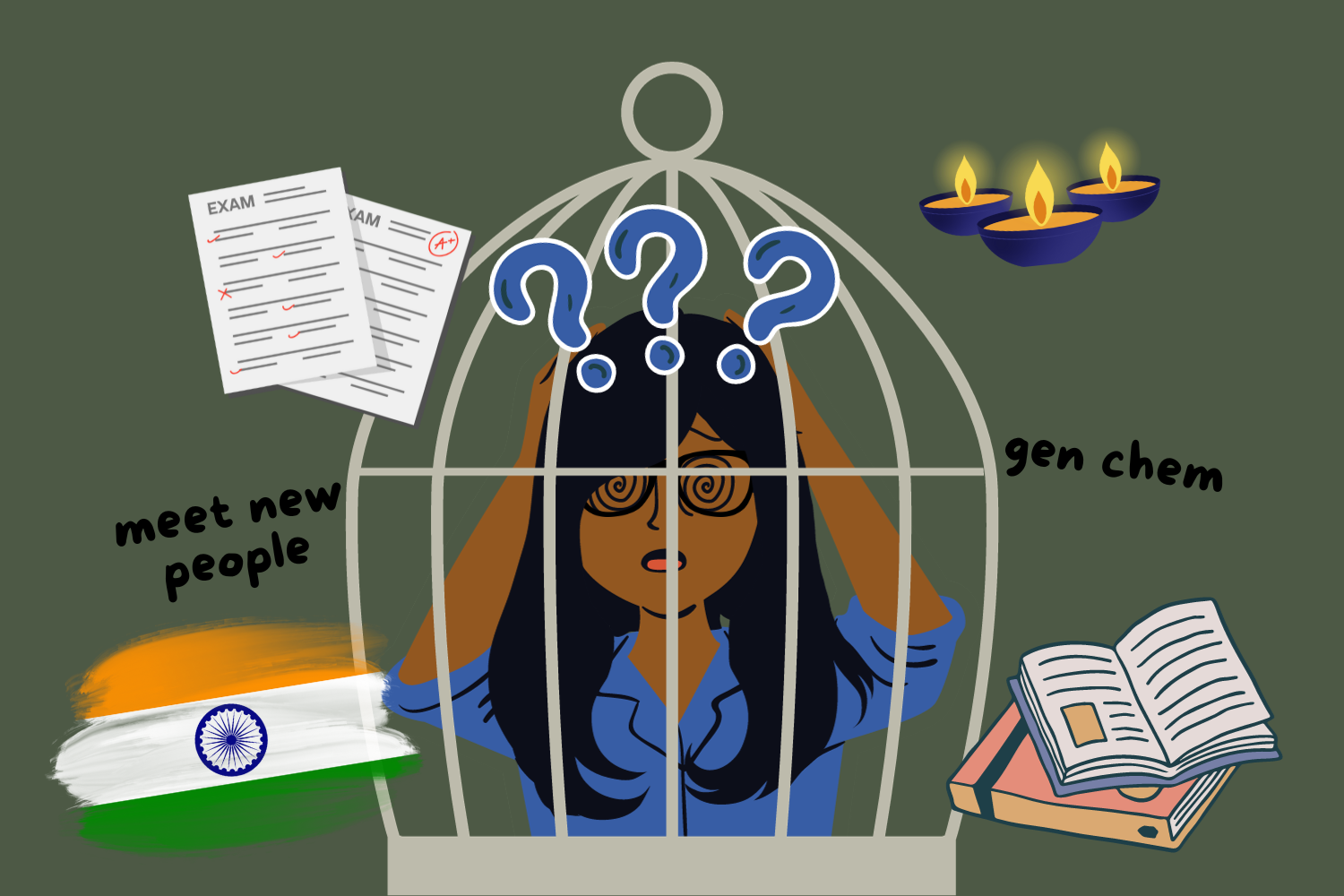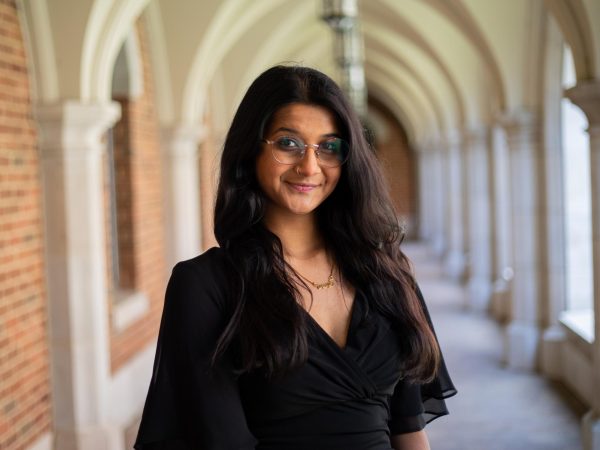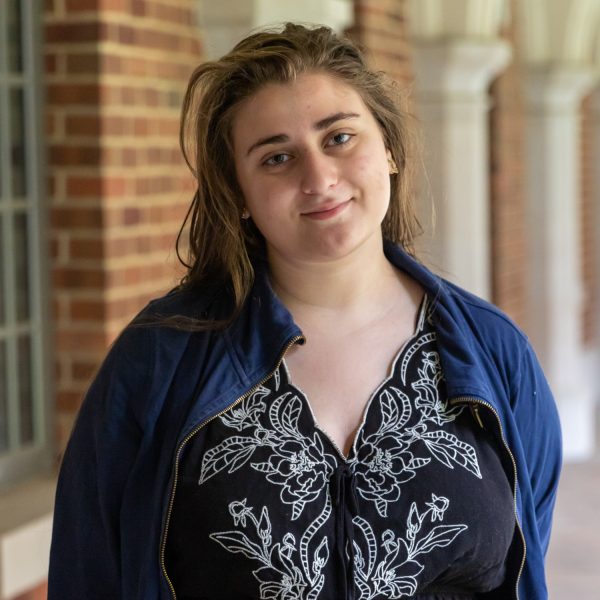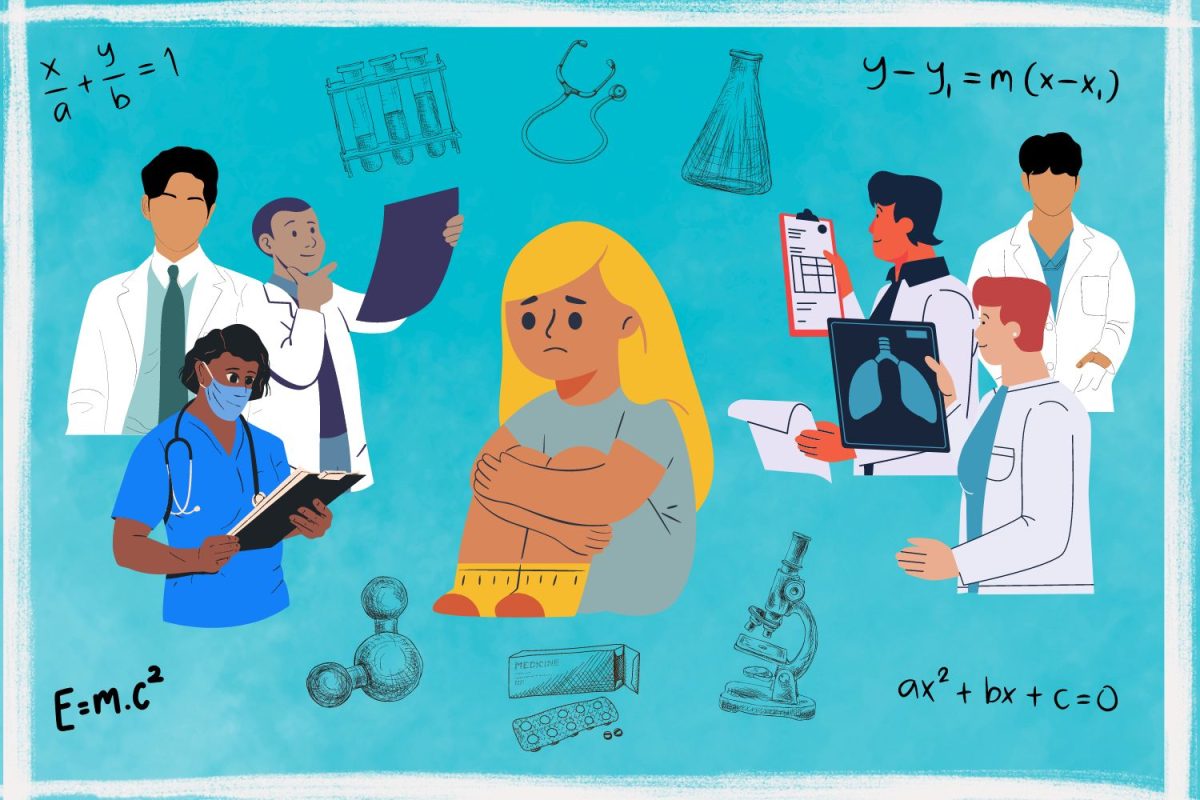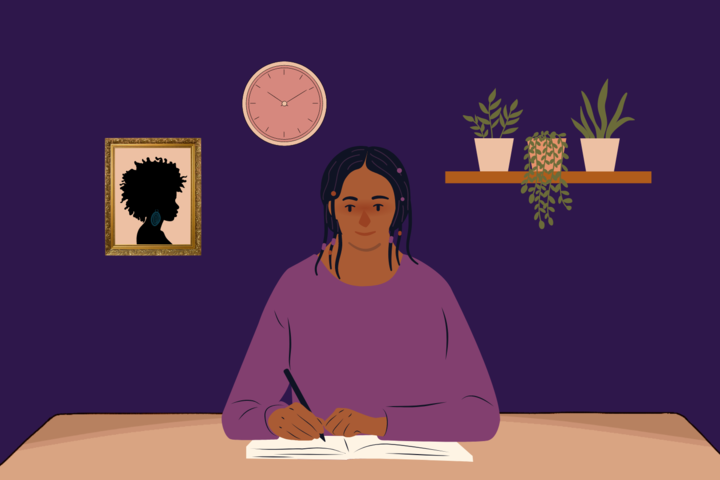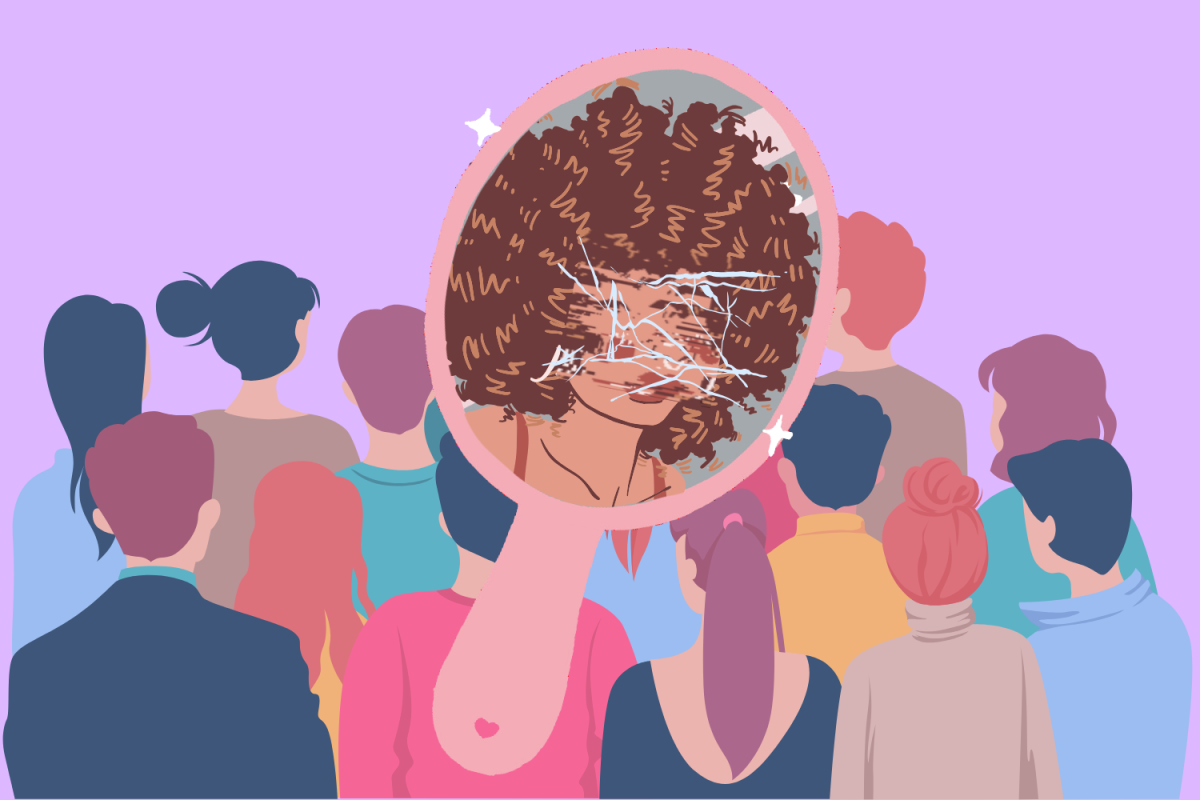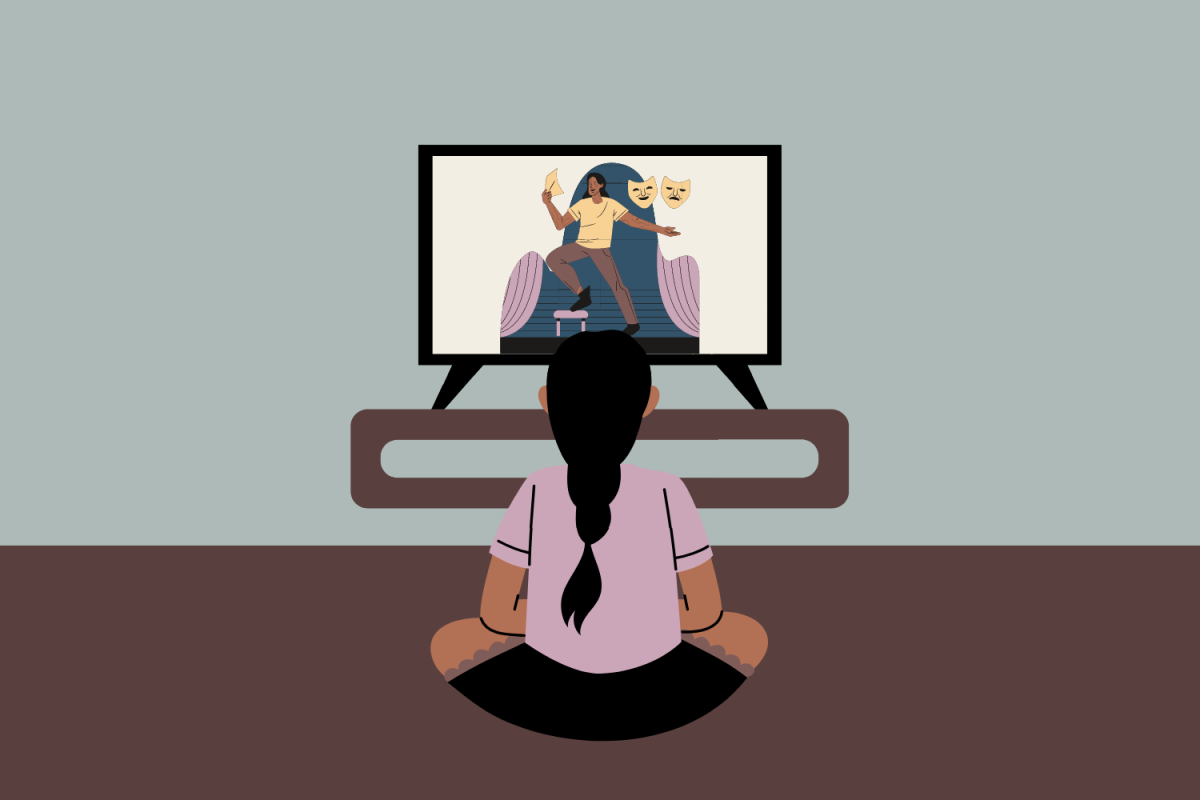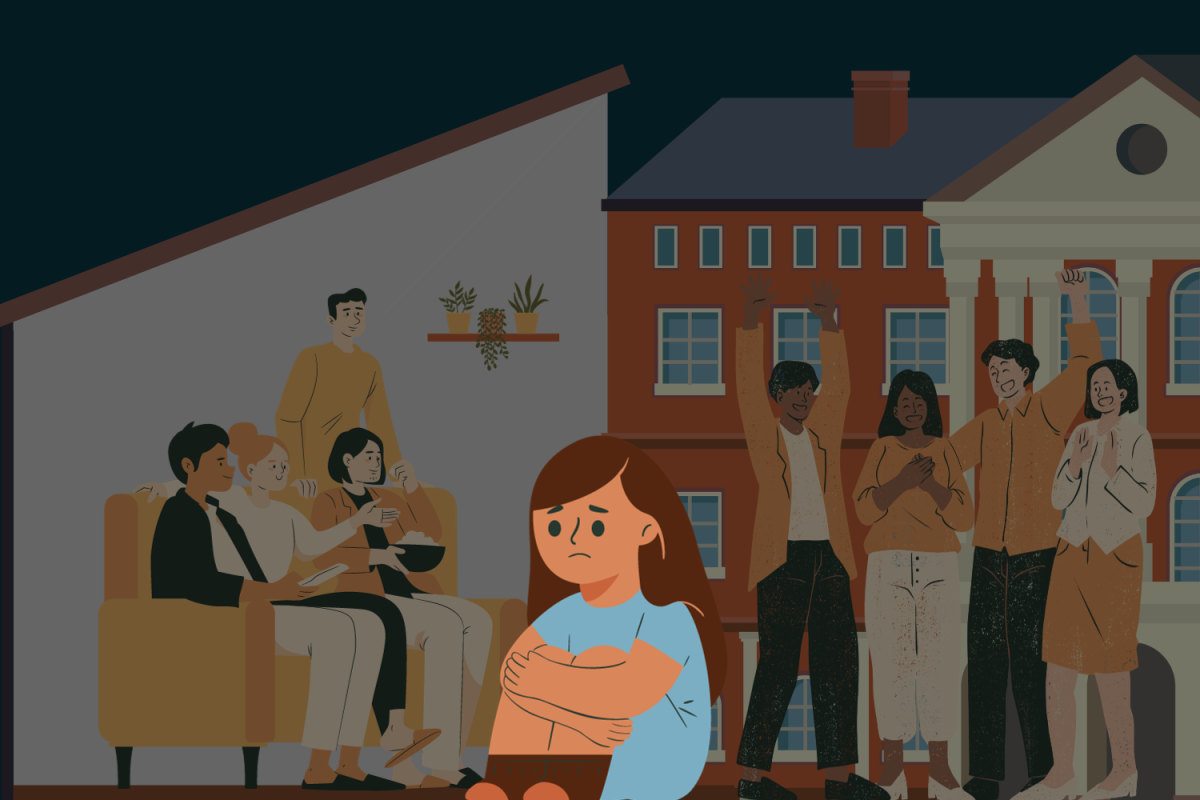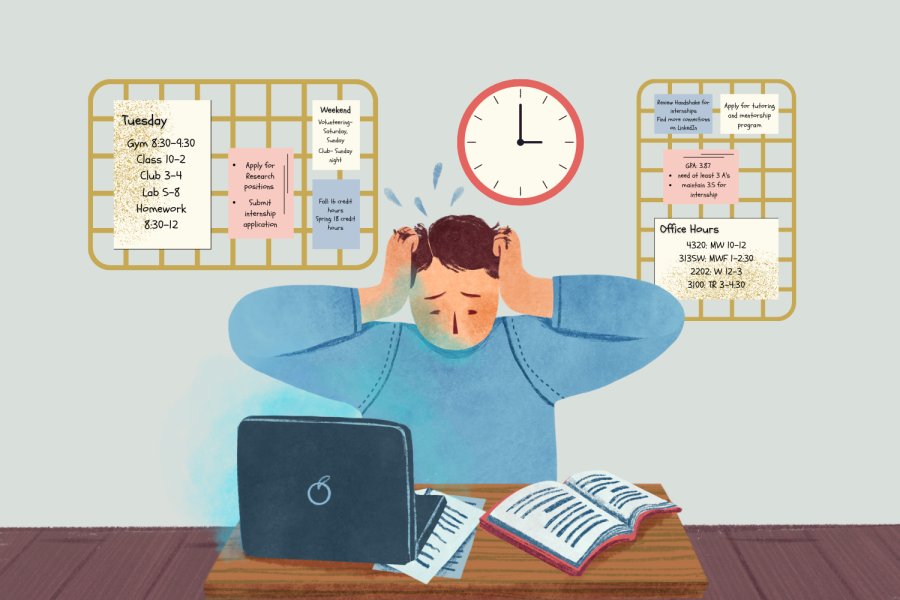Being Indian has always been a large part of my identity. As the only Indian student in my grade in high school, I’ve always been used to being different from others. I initially abhorred this distinction, but I learned to appreciate it. At school, I didn’t feel like I had to conform myself to mass-media portrayals and stereotypes of my culture because there was no mold to fit into. I did not feel like I had to “blend” with an ethnic group in school.
Yet, stereotypes within my ethnic community were present from a young age. The pervasive assumption that smaller communities of the same ethnicity are completely accepting of each other isn’t always the case, and it certainly wasn’t for me. Though small, my Indian community in Chattanooga, Tenn., was not as tight-knit as some may think. I found it impossible to achieve a healthy balance between being judged by community members for being too “whitewashed” and being too “Indian.” I’m American and Indian, and I never understood why I wasn’t comfortable with being both or celebrating my cultural pride.
In my community, kids grew up being compared to each other — usually academically, which created a lot of animosity within me that I inadvertently directed at my peers throughout my high school years and even into my first few weeks at college. Being the only Indian in my grade allowed me to control the definition of being Indian, so I restricted my understanding and acceptance of my culture. I convinced myself and others that all other Indians are cliquey and academically competitive like the ones in my hometown. That was my biggest mistake.
When I started college, I knew I would be exposed to much change — such as living away from home, eating different food and adjusting to more rigorous academics. Amid this change, I found myself drawn to those who had familiar experiences. I sought out an Indian roommate because I knew the cultural barrier between myself and a non-Indian roommate would be too drastic for me to handle. I wanted to live with someone who had similar cultural experiences and who could talk with me for hours about our favorite Bollywood films and reminisce on our favorite home-cooked meals. This need for familiarity and security was just the beginning; soon enough, all of my friends were Indian women — but unlike in high school, I was okay with being friends with others from my culture. College opened my eyes, helping me to get past my earlier sourness toward other Indians. These peers became my very best friends and loved and accepted me. There’s no feeling like the high of finally feeling like I belonged.
But pretty quickly, I realized that I was only associating with Indian people. My friend group had grown so large that I had become the very type of person I had loathed for all those years — one who solidified her clique until no one else could enter. Associating myself with people from only one background trapped me in a bubble and prevented me from experiencing important aspects of college: branching out and meeting new, different people. I know it can be tempting to involve yourself only with those who are like you, but it is crucial to meet others and experience what you’ve never experienced. It is crucial to expand your circle to include people with whom you may disagree and differ. While I enjoy celebrating traditional holidays with my close Indian friends, it’s also wonderful to come together with people of diverse backgrounds and expose myself to a new and exciting world of endless possibilities.
I’m amazed by the diversity of people I’ve met simply because I stopped restricting myself to a group of people who looked like me. The world isn’t just full of people like you — there is so much variety and so many stories to be heard and told. Learning about this diversity in college is important in realizing that everyone is unique; it allows us to heighten our cultural awareness and how we interact with others.
While the ability to fit in is desirable to everyone, it is detrimental to our self-development. We cannot cement ourselves in relationships with only people from our background. I’ve expanded my bubble by doing the smallest things: asking people their names in the elevator, sympathizing with others over General Chemistry and sitting with people I’ve never met at Commons Dining Hall. I love my culture, and I love the avenue it has given for me to find others like myself and celebrate the richness and individuality of our people. But I’m also slowly discovering a healthy in-between — one where I don’t have to separate myself from those who share my culture and where I don’t suffocate my world with the desire to fit into what could be deemed as the “the cultural norm.”
College is a new chapter. Don’t bind your pages before you finish the book.




